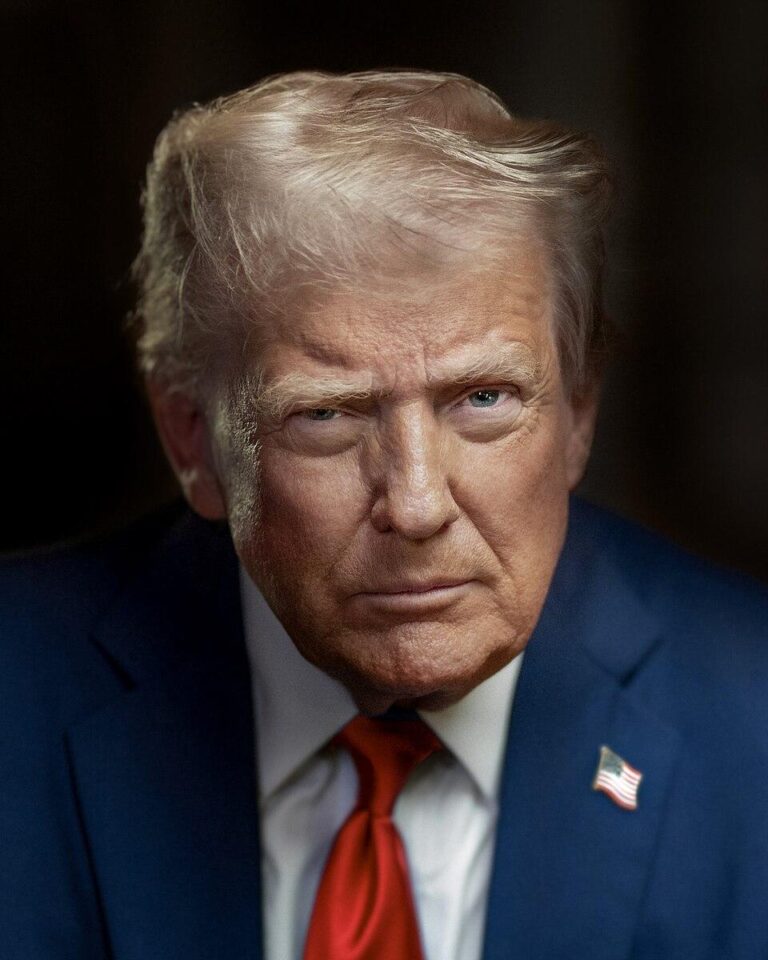In a striking escalation of trade tensions, the United States has imposed a 50% tariff on a range of Brazilian imports, citing concerns that extend beyond economic issues. The move comes amid the ongoing trial of Brazil’s former president and close ally of Donald Trump, Jair Bolsonaro, signaling a complex interplay between diplomatic relations and judicial proceedings. This unprecedented tariff hike marks a significant shift in U.S.-Brazil relations and raises questions about the future of bilateral trade and political alliances.
Trump Imposes 50 Percent Tariff on Brazilian Imports Amid Political Tensions
In a significant escalation of trade tensions, the Trump administration has levied a 50 percent tariff on a broad range of Brazilian imports. This unprecedented move targets key Brazilian sectors, including agriculture, steel, and automotive parts, resulting in immediate ripples across international markets. Officials attribute part of this aggressive economic strategy to the ongoing trial of former Brazilian President Jair Bolsonaro, an ally closely watched by Washington. The tariff aims to exert pressure on Brazil’s political landscape, amplifying the already strained bilateral relationship amid concerns over governance and regional influence.
Analysts warn that the tariffs could trigger several consequences for both nations, disrupting supply chains and escalating costs for consumers. The affected Brazilian goods now face significant hurdles to enter the U.S. market, potentially redirecting trade flows towards alternative partners. Key sectors impacted include:
- Agriculture: Coffee, soybeans, and meat exports face steep tariffs.
- Manufacturing: Automotive components and steel have seen sharp price increases.
- Energy: Oil and ethanol shipments are now heavily taxed.
| Sector | Previous Tariff | Current Tariff |
|---|---|---|
| Agriculture | 10% | 50% |
| Steel | 25% | 50% |
| Automotive Parts | 15% | 50% |
| Energy | 5% | 50% |
Economic Impact Assessed as Bolsonaro Faces Trial and Its Ripple Effects
The imposition of a 50% tariff by the United States on Brazilian imports signals a significant escalation in trade tensions amid the ongoing trial of former President Jair Bolsonaro. Market analysts warn that this punitive measure not only threatens Brazil’s export-driven sectors but also cultivates uncertainty in global supply chains. The move can be seen as a geopolitical lever, intertwining judicial proceedings with economic retaliation, which undermines investor confidence and dampens economic growth prospects in Latin America’s largest economy.
Key sectors expected to bear the brunt of the tariffs include:
- Agriculture: especially soybeans and meat exports
- Manufacturing: automotive parts and machinery components
- Energy: biofuels and emerging renewable technologies
| Sector | Estimated Export Loss (%) | Potential Unemployment Impact |
|---|---|---|
| Agriculture | 18% | Moderate |
| Manufacturing | 22% | High |
| Energy | 10% | Low |
Experts Advise Strategic Trade Adjustments for Businesses Navigating US-Brazil Relations
The imposition of a sweeping 50% tariff on Brazilian imports by the Trump administration has sent shockwaves through the business community, compelling enterprises engaged in US-Brazil trade to reconsider their operational strategies. Experts emphasize that companies must adopt a multifaceted approach to mitigate the impact, focusing not only on immediate cost management but also on long-term adaptability amid a politically charged environment. Key recommendations include:
- Diversifying Supply Chains: Reducing dependence on Brazilian sources to minimize tariff exposure.
- Engaging in Diplomatic Dialogue: Leveraging industry trade groups to advocate for policy revisions.
- Exploring Alternative Markets: Identifying new partners in Latin America and beyond to compensate for disrupted trade flows.
Market analysts note that timely adjustments could define competitive advantage in the evolving landscape shaped partly by the high-profile legal proceedings involving former Brazilian President Jair Bolsonaro, an ally whose trial has been closely linked to heightened US-Brazil tensions. The table below outlines potential strategic responses against corresponding expected benefits, aiding decision-makers in prioritizing their initiatives effectively:
| Strategic Response | Expected Benefit |
|---|---|
| Supply Chain Diversification | Risk Reduction & Cost Stability |
| Industry Lobbying | Improved Trade Policies |
| Market Expansion Efforts | Revenue Diversification |
` tag at the end and also the closing `
` tag is not properly closed. Here’s a corrected and complete version of your content:
“`html
The imposition of a sweeping 50% tariff on Brazilian imports by the Trump administration has sent shockwaves through the business community, compelling enterprises engaged in US-Brazil trade to reconsider their operational strategies. Experts emphasize that companies must adopt a multifaceted approach to mitigate the impact, focusing not only on immediate cost management but also on long-term adaptability amid a politically charged environment. Key recommendations include:
- Diversifying Supply Chains: Reducing dependence on Brazilian sources to minimize tariff exposure.
- Engaging in Diplomatic Dialogue: Leveraging industry trade groups to advocate for policy revisions.
- Exploring Alternative Markets: Identifying new partners in Latin America and beyond to compensate for disrupted trade flows.
Market analysts note that timely adjustments could define competitive advantage in the evolving landscape shaped partly by the high-profile legal proceedings involving former Brazilian President Jair Bolsonaro, an ally whose trial has been closely linked to heightened US-Brazil tensions. The table below outlines potential strategic responses against corresponding expected benefits, aiding decision-makers in prioritizing their initiatives effectively:
| Strategic Response | Expected Benefit |
|---|---|
| Supply Chain Diversification | Risk Reduction & Cost Stability |
| Industry Lobbying | Improved Trade Policies |
| The Way Forward
As tensions escalate between Washington and BrasÃlia, the imposition of a 50% tariff by the Trump administration marks a significant shift in U.S.-Brazil trade relations. This move, influenced in part by the ongoing legal challenges faced by Bolsonaro, underscores the complex interplay of political and economic factors shaping bilateral ties. Observers will be closely monitoring how both countries navigate this diplomatic rift and its broader implications for trade in the Americas. |




